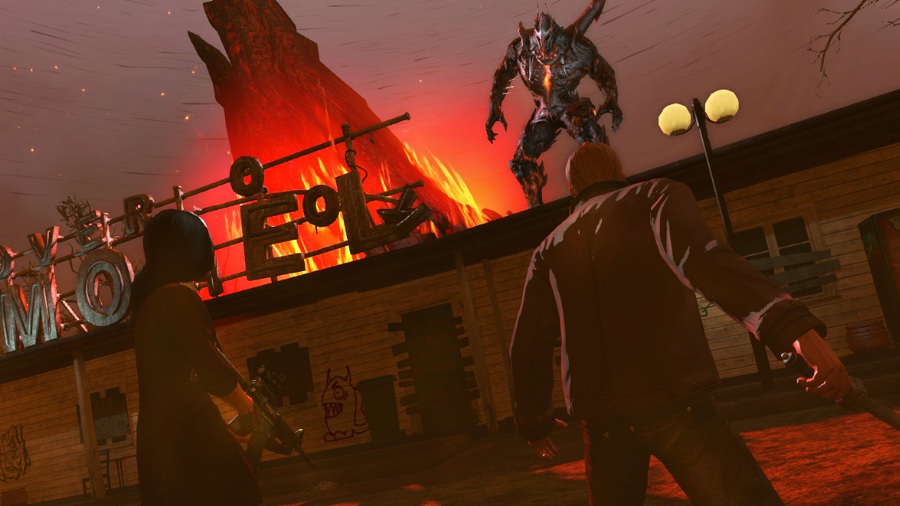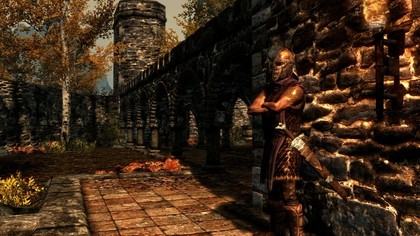Can game developers save AI?
How Artificial Intelligence still has a big part to play

There's no stranger field than Artificial Intelligence. The science of making intelligent machines has never had greater potential - or seemed more insurmountably difficult.
The more we study the human foundations of intelligence, the deeper we probe into the massively parallel processor that is the human brain, the less plausible seem our first attempts at creating artificial thought close to our own - and the more likely that we won't perceive it as real, that is human-like, intelligence.
For every human-capable task, there is a different criterion for intelligence - some tasks like number crunching convince us computers are superhuman, some like language processing that they're sub-human - but rarely is a computer consistently on our level.
Even relatively simple simulacra, designed to convince a human that they're another human, have failed singularly to do so - the $100,000 Loebner prize for passing the Turing Test remains unclaimed.
Even AI designer Dr Stephen Thaler is skeptical of programmer's efforts to generate AIs through the emergent properties of hugely powerful computers:
"Large companies and universities are catering to the public misconception that size, speed, and complexity will somehow lead to human-level machine intelligence.
Put a HAL-like voice behind an impressive database search and 90% of the population mistakenly thinks 'wow, with just a few more computers, the thing will become conscious.' Certainly, these are not the AI systems anticipated by science fiction."
Sign up for breaking news, reviews, opinion, top tech deals, and more.
There are pure AI developers out there, working in universities or for defense institutions (like Dr Thaler) or working in data-mining companies (like the team who created IBM's Watson) but the people who spent most of their time trying to convince humans that their programs have human-like intelligence are game programmers.

We caught up with a handful of them to see if they thought their work was going to produce something that might change the state of AI.
Bruce Wilcox of Telltale Games, creator of the Loebner Prize-winning chatbot Suzette, made it clear that what games do is normally very different from the mainstream emergent technique and much closer to the Turing Test technique; "Game AI" is generally not "mainstream AI". Game AI seeks to create the illusion of a competent opponent by whatever means (often smoke and mirrors).
Mainstream AI actually tries to create techniques whereby problems are solved "as though like a human" and covers a wide range of things. Every time they succeed, the technique is swallowed by mainstream computing and is no longer considered AI. Expert systems were useful and there are now autonomous fighter drones. Speech recognition is useful. Text to speech is useful. Chess is won. Jeopardy is won."
So what is gaming AI then? Guy Somberg, the Technical Director of Minion Master; "The purpose of gaming AI is to change the way that the player plays the game. Having a good AI doesn't necessarily mean making it "more intelligent". In fact, one of the challenges in game AI is to make it predictable, while still providing a challenge. What that means is different for every game."
Frank Savage, CTO of Jumala agrees; "Gaming AI is designed to provide the largest number of players with the most fun experience possible. It is generally not designed to beat them every time because it's quite easy to write that AI!"
Joel Bylos of Funcom is Lead Content Designer for The Secret World. He thinks that the simplicity of opponent AI in games has stagnated; "Not because developers cannot make better AI, but actually because players don't really want the AI to be too clever. The computer is omniscient, so scripting AI that "appears" human is the tricky part."
However, there are many other forms of AI in games, such the companion AI and NPC scheduling seen in Skyrim, but it's again limited by the way it's been designed for virtual spaces.

"Game AI tends to know everything it needs to about the spaces it lives in," explains Bylos "but real world AI (such as robots or drones) needs to map the space as it goes. It's possible to map real world spaces for real world AI to interact with, but then the space needs to remain static for the AI to be able to "keep up".
So, if we can only export mainstream game AI by making the real world more virtual, what can we use? John Warren of Minicore points to Serious Games, like Fate of the World or the health games we've looked at previously on TechRadar. "Outside of gaming, quality AI can contribute to society, but it starts with serious gaming.

Using high-quality AI in serious games for medical, military, or industrial purposes will make human labor more efficient. It's exciting stuff. We have to start taking the time to make it happen, though." Jumala's Savage agrees; "Today, these are primarily canned scenarios.
But, to really push AI forward, we should design AIs for these scenarios that do things which are much harder to anticipate. This, again, is a very difficult challenge and a great problem to solve."
At the moment, gaming AI is not immediately applicable to real-world problems, and especially doesn't seem like it will create the rich AI that our science fiction predecessors have helped us dream about. Despite this, Serious Gaming AI can provide serious benefits to human productivity - if we can work out how to make it more imaginative.